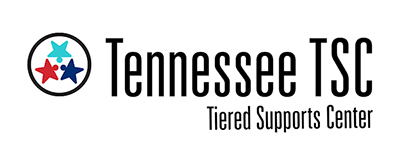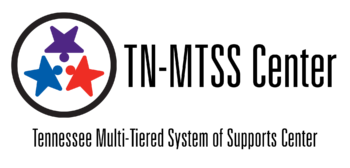What is RTI2-B?
RTI2-B stands for Response to Instruction and Intervention for Behavior. RTI2-B helps schools create a positive culture for students and staff with the goal of improving academic and behavioral outcomes for ALL students. All of these efforts require a shared commitment school-wide to teach and reinforce positive behavior. It also involves adopting an optimistic view that all students can learn appropriate behavior if sufficient and supportive opportunities to learn are provided. Furthermore, student and staff contributions to the school create a positive and proactive way to acknowledge, engage, and respect all stakeholders.
The purpose of RTI2-B is to empower educators to equip all students with the opportunity to meet high expectations regarding behavior and the support to reach every student. Also, students, families, and educators can work together to develop and contribute to a shared school vision. Tennessee Behavior Supports Project can help schools meet that goal.
RTI2-B Team Lead vs. External Coach
There are two types of leadership roles that could be a part of the RTI2-B school team: A team lead employed by the school and an external coach employed by the district or state. The team lead and external coach will have a key role in assisting school teams during the day-to-day practices of implementing and maintaining RTI2-B.
Team Lead Responsibilities:
- Attends coaches and school training
- Serves as the liaison between the school and district/state
- Coordinates with external coach
- Facilitates and schedules all team meetings
- Coordinates ongoing learning and training
- Coordinates data collection and review
- Manages ongoing action planning
External Coach Responsibilities:
- Attends coaches and school training
- Coordinates with school team lead
- Facilitates implementation development
- Connects school teams to a community of practice
- Coordinates ongoing learning and training
- Reports all data and activities to district and state personnel
- Assists in ongoing action planning
- Collaborates on trainings with state and district personnel
- Stays active and involved
All schools should have an external coach and access to external expertise. External expertise might include regional support contract staff, trained state and district personnel, or national resources. During implementation of RTI2-B, it is important to have an outsider’s feedback on your school’s plan.
Benefits of RTI2-B
- Improves school climate
- Reduces problem behaviors
- Reduces office discipline referrals, suspensions, and expulsions
- Increases time for academic instruction
- Improves student achievement
- Improves student attendance
- Increases parent, student, and staff satisfaction
- Reduces staff turnover
- Reduces bullying behaviors
(Horner et al., 2014)

